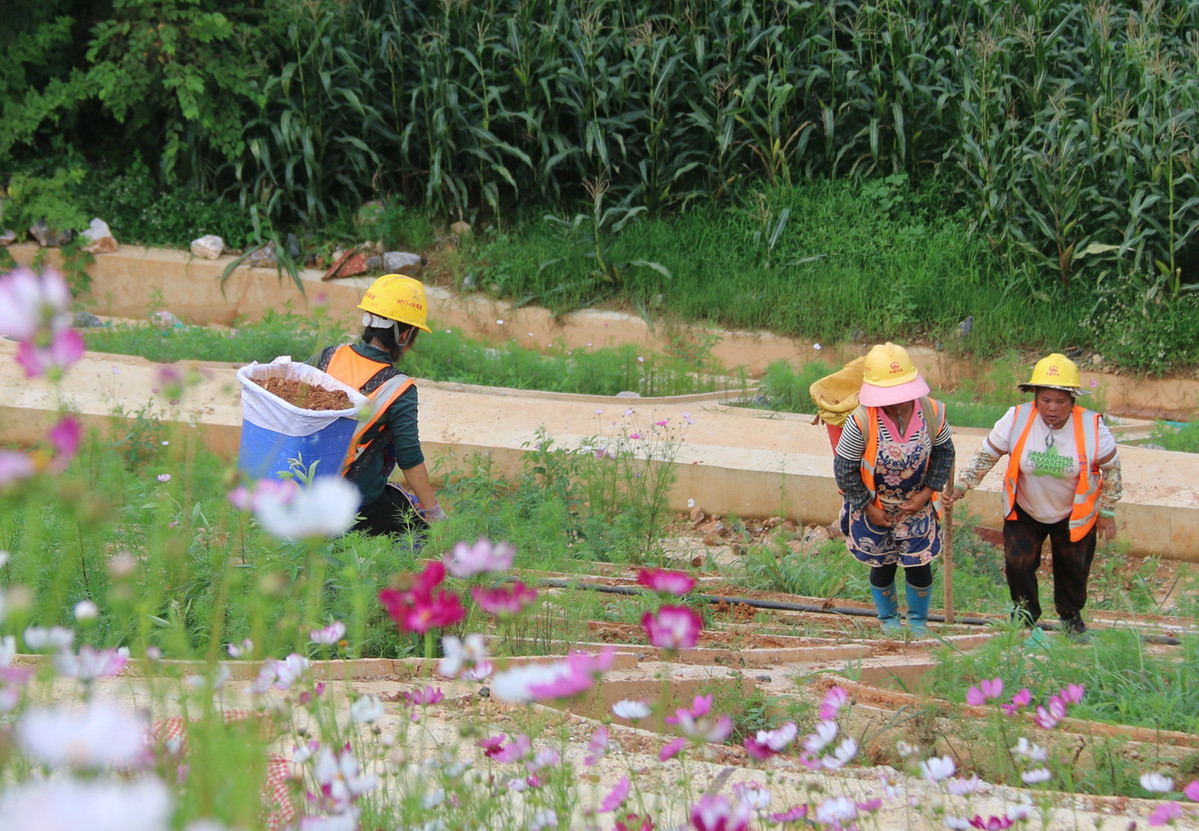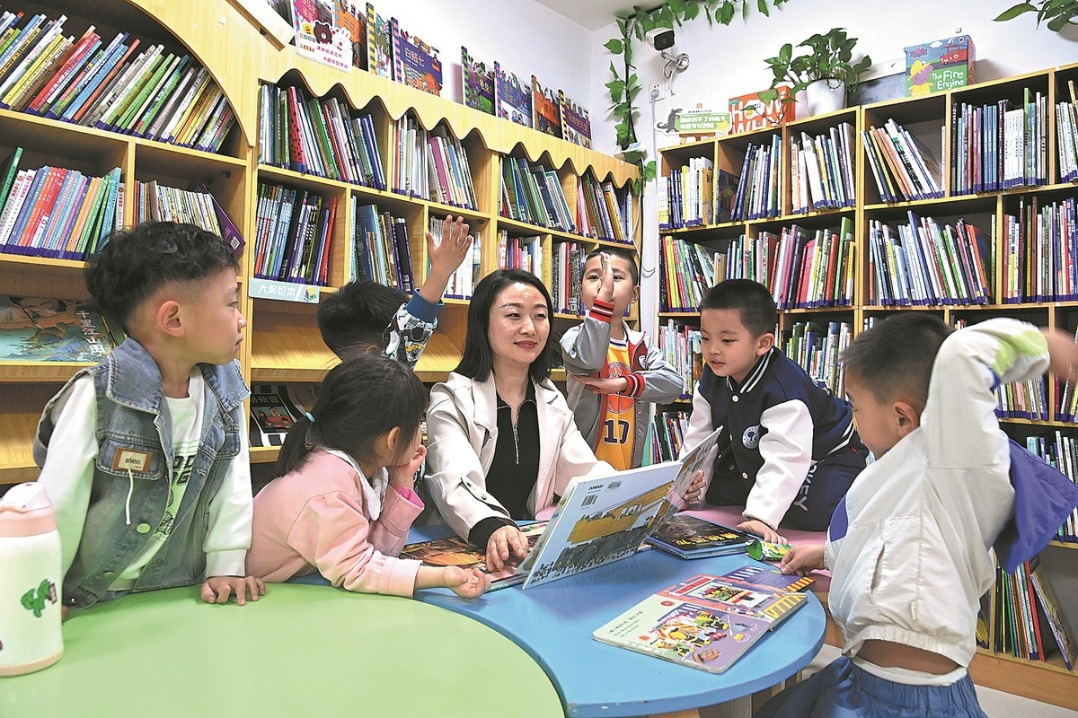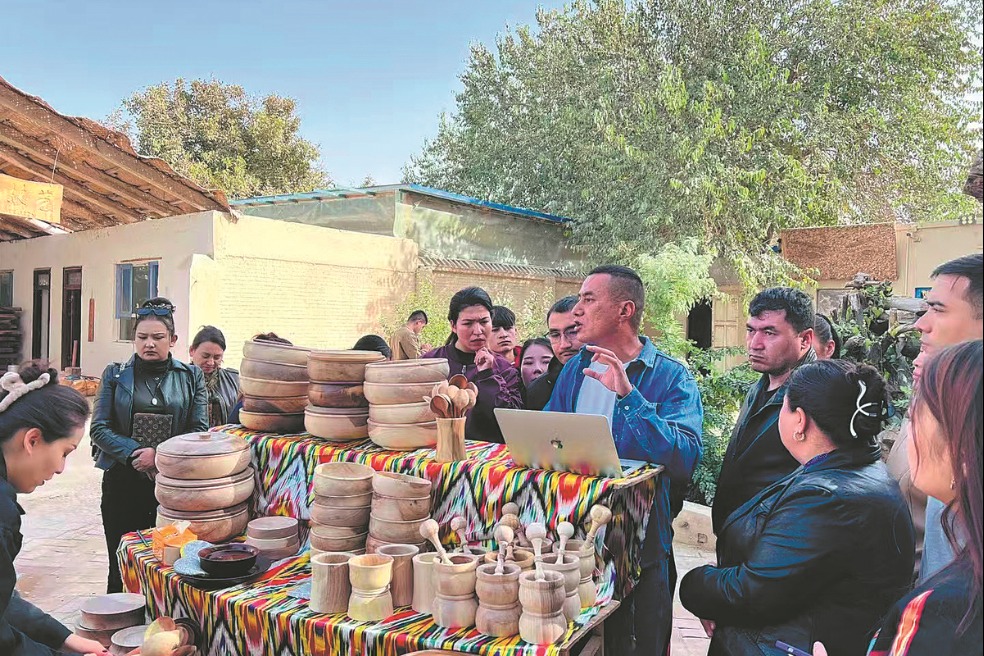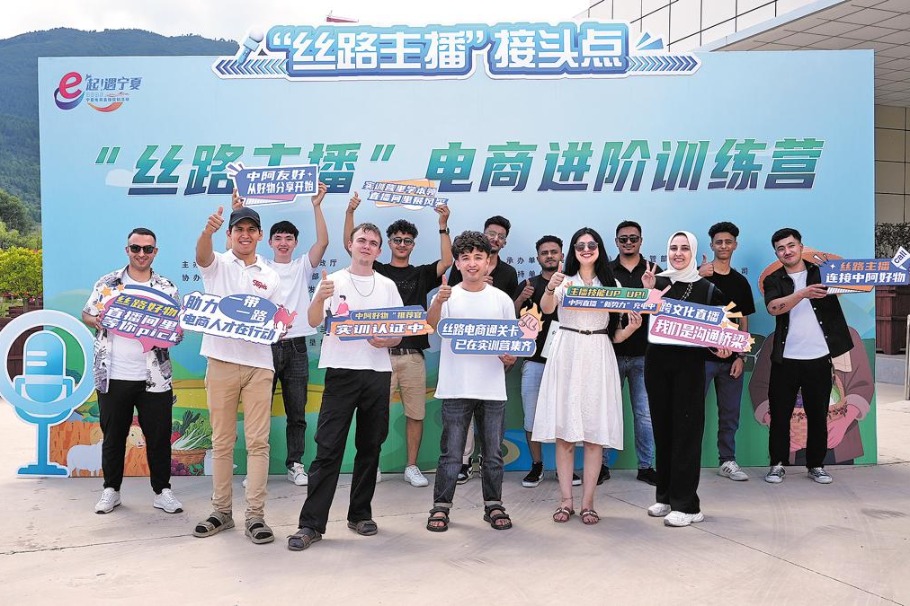Development brings Liuzhi residents better prospects
Infrastructure improvements boosting local economy, helping communities in Guizhou get jobs and overcome geographic barriers


Li Guang was chief engineer of the project, and fully considered the living habits of the locals when planning the access roads. "Our technicians visited nine villages and towns and marked in detail the existing roads' potholes, steep slope sections, and the main travel routes of the villagers before finalizing on a road improvement task," he said.
In four months, Li Guang's team renovated 17.25 kilometers of existing roads, built three pedestrian overpasses and a new steel wharf for the villagers to travel, allowing them not to detour or walk on muddy roads.
In addition, they also added a 436-meter mountain road and a 159-meter auxiliary road near Xujiawan Bridge to slash the travel time from Yanjiao town to Yongfeng village in Longhe to 20 minutes from one hour.
Wang Xingming, a local Miao elderly man, said to go to the market in Longhe from his Yongfeng village, he used to carry a basket and detour several miles on the mountain road, and it was more difficult to walk on rainy days.
"Now, it's much convenient for me," he said.
More tech and jobs
Li Guang stressed that though building roads is important, helping the locals get jobs and increase income is equally vital.
"One-third of the villages of Longhe are Miao ethnic villages, and most young people rely on migrant work to improve their lives," he said, noting that helping locals improve their skills and find jobs nearby is imperative.
"Our project department organized 30 free training sessions and pre-job training on steel bar binding and welding for over 200 people, and finally hired some of them for the construction work," he said.
The locals were thrilled. Yang Wenfu, a Miao ethnic worker from Longchang village in Longhe town where Li's project department is based, joined the CREC4 construction team six months ago.
"Previously, I had to depend on my 0.2-hectare paddy field and rapeseed fields to make a living, but now, as a steel reinforcement worker, I can proficiently tie and knot steel bars to earn a handsome monthly salary to support my children in education," he said.
"My dad used to say that our Miao ethnic family relied on the mountains for food, but the mountains are too high and the roads were too steep, so young people had to work outside our home for better income," Yang said, noting that he is happy to seek a job on his doorstep and help build an expressway for the hometown.
Zhang Yonghong, from Shuanglong village, has been attending classes on welding steel bars for bridge deck crash barriers. "When I master this skill, I will be able to find a job," he said.
Li Shifu noted that since their construction work started, they have provided 1,647 jobs for locals, including 142 ethnic minority workers, paying them 118.584 million yuan in salaries.
"Moreover, our 2,400 staff members working here have also boosted the economy of Longhe through our spending, helping it with better roads, and fuller wallets for the villagers," he said.
Children in school
During construction work, the CREC4 project department learned that some local families have children who are left behind in villages by their parents going to cities for migrant jobs, posing some psychological challenges among them, while some families even have difficulties with their children's education.
"We decided to extend a helping hand to aid cash-trapped students in one middle school and three primary schools," Li Shifu said.
"After conducting surveys on disadvantaged families, we started a 'one-on-one' aid drive, pairing 10 young workers with 10 students needing the help," he said, adding that his colleagues provided subsidies ranging from 500 yuan to 2,000 yuan for them, as well as school bags, stationery and other supplies according to the actual situation.
"The uncles and aunts from CREC4 also renovated the basketball court for us. I will cherish the chance, study hard and strive to give our contribution to the society like them in the future," said He Tingting, a fifth grader at Qiaoliang Elementary School.
hanjingyan@chinadaily.com.cn
























